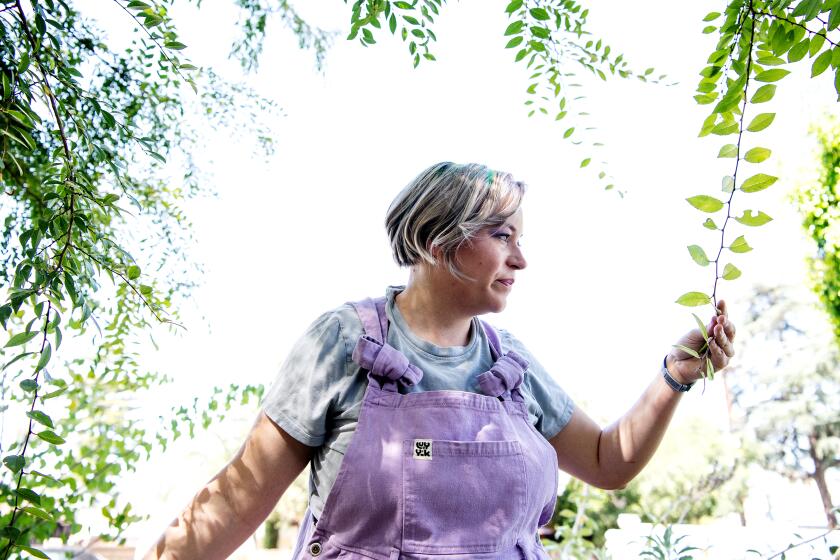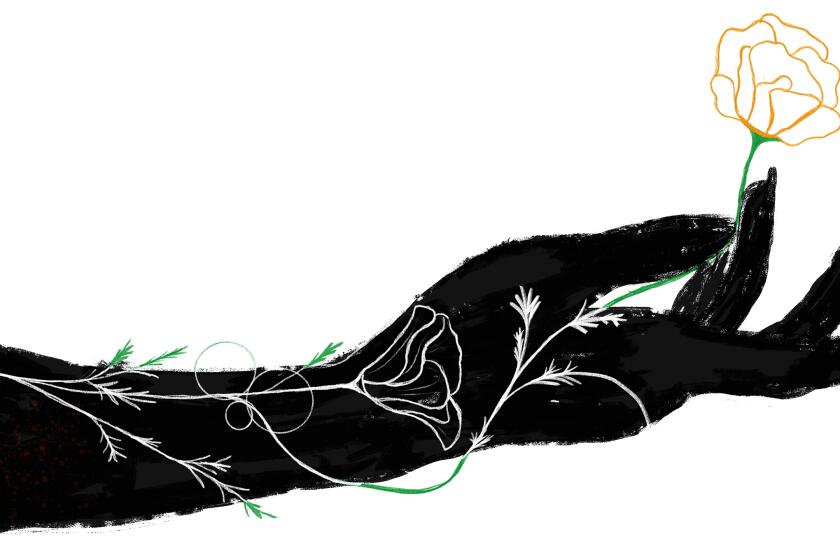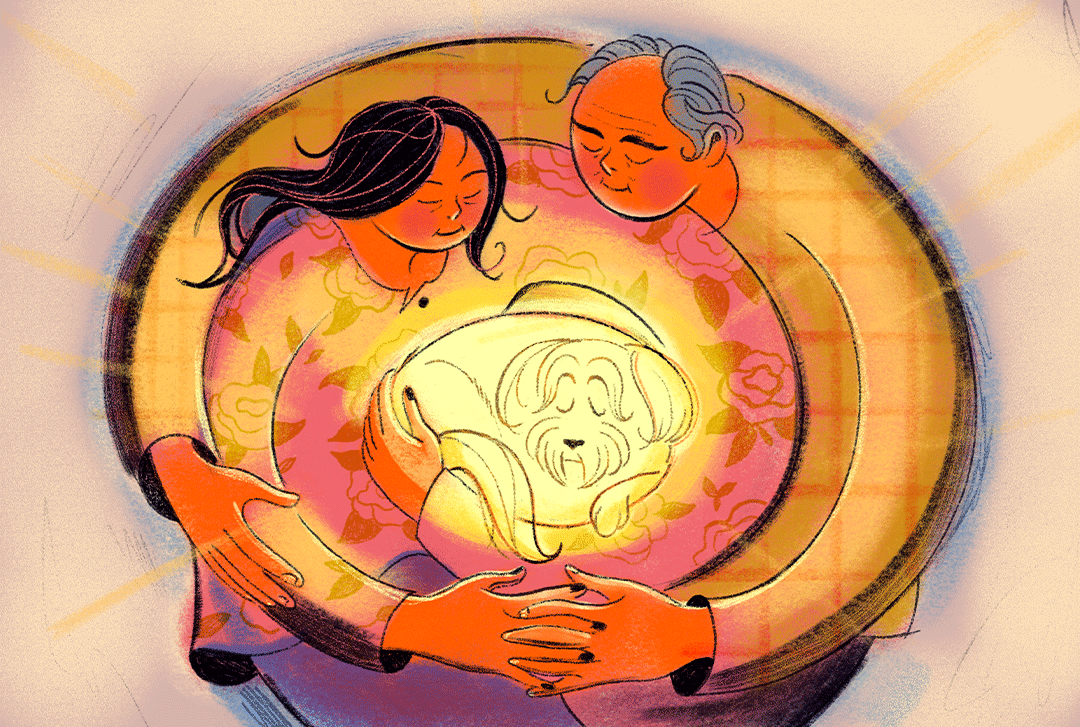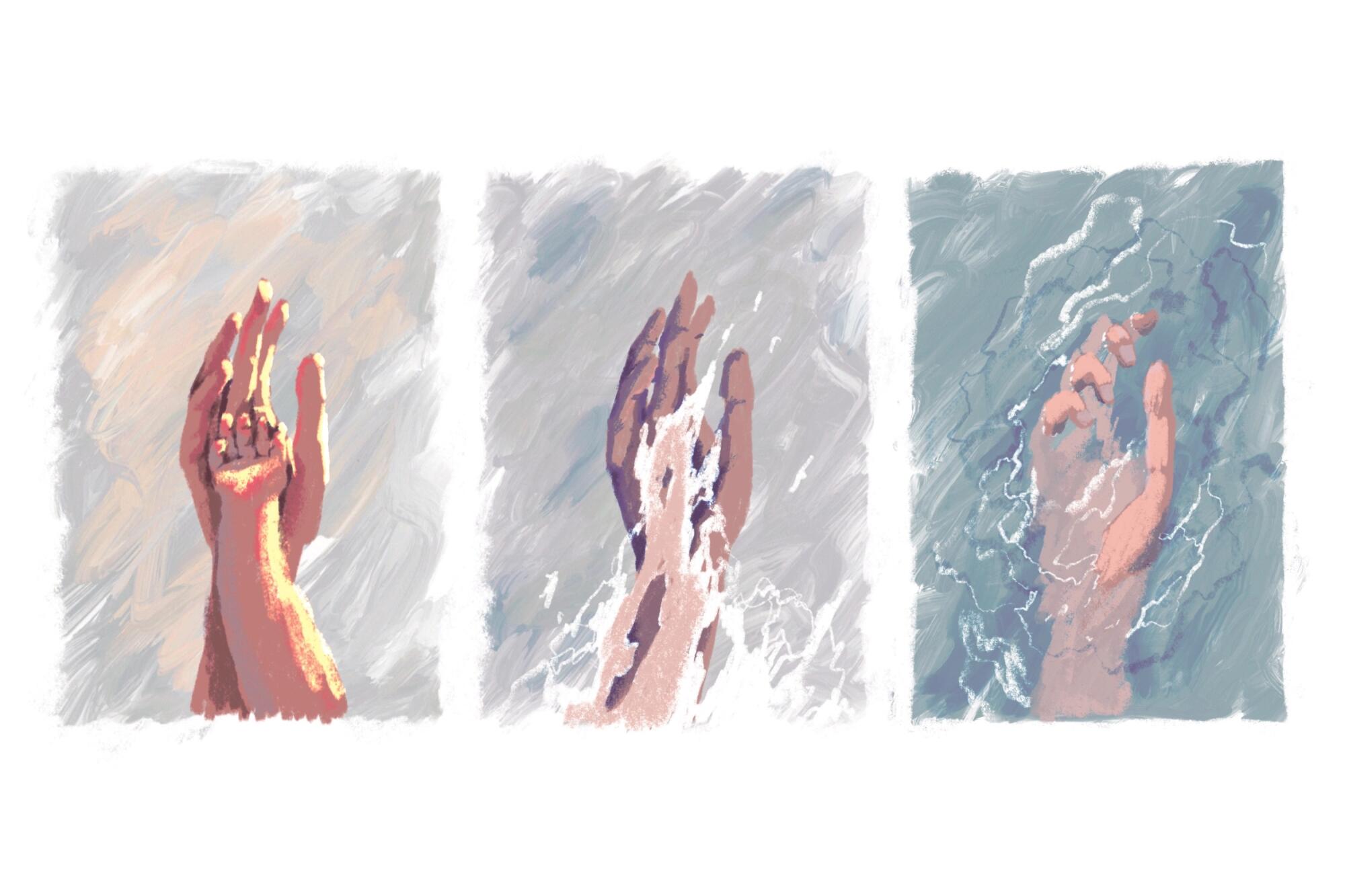
- Share via
“That’s a fancy baby,” a 4-year-old girl with colorful barrettes said as she walked by our stroller at a neighborhood park.
No matter that the little girl was roughly the same age as my daughter, Evan Frances, who people often say resembles a Cabbage Patch doll, a cherub or, in my opinion, the Stay Puft Marshmallow Man.
Miss Evan — as we often call her — was clad in a leopard-print shirt and black pants emblazoned with metallic hearts. Her signature glittering pink cat-eye sunglasses were tucked behind her ears along with a coordinated Hearing Henry headband, which held her cochlear implant devices in place. Evan’s latter “accessory” was a choice my husband, Michael, and I made together the moment we learned she was born deaf. The surgery, which took place when she was 9 months old, gave her the ability to hear our voices as well as music, books being read to her and the little girl’s compliment.

Evan’s freshly painted toes, a limited-edition orange-red shade of Chanel nail polish, peeked out from her butterfly print leg braces.
They almost always did because her adorably chubby feet didn’t easily fit into socks or shoes. “Evan tends to run warm,” I rationalized, but perhaps it was actually because it was one less item to put on her. After all, her bare feet never touched the ground.
Whether it was Evan’s accessories or her indelible smile, people, young and old, reacted to her in ways that left as much of an imprint on me as Evan apparently did on them.
A UPS driver once stopped his truck in the middle of the street, midroute, to tell my brother, Casey, how cute Evan was. A man in a convertible making a left-hand turn into the Malibu Country Mart once called out: “You make beautiful kids. You should make more.” Two tourists asked to take pictures with Evan during a Rodeo Drive outing, and a teenage girl at a Fourth of July block party texted a friend a photo she’d taken of Evan from afar that read “Cute baby I saw.” I only know because, coincidentally, she’d unknowingly sent it to a family friend.
A garden planted with water savings in mind served as a comfort during a difficult year.
Strolling with Miss Evan felt a bit like being in the presence of a celebrity. There was something magical about her essence, and we dressed her in a way that let people know it the instant they laid eyes on her. I would particularly chuckle at the fact that grown men would comment as much as women.
“Her future is so bright, she’s got to have her shades on,” a muscular dude in gym clothes once said, snorting to himself, as we strolled around our neighborhood.
I didn’t have the heart to tell him — or any stranger we met during our strolls — that we’d been told Miss Evan would likely live only a handful of years because of an ultra-rare congenital mitochondrial disease that took doctors at UCLA’s Undiagnosed Diseases Network and Rady Children’s Institute for Genomic Medicine in San Diego nearly two years to diagnose after she was born.
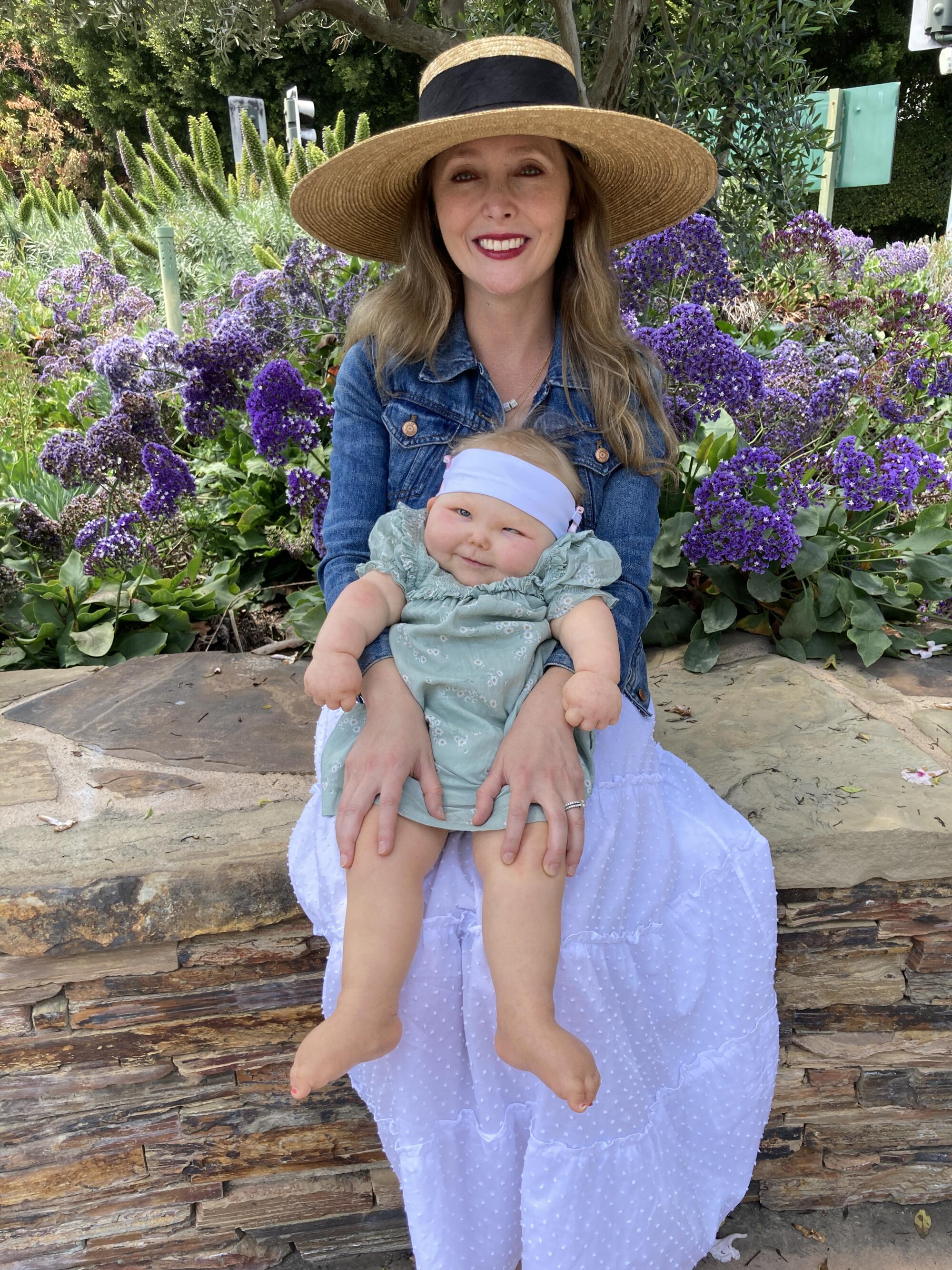
Coincidentally, we received her official KARS-gene diagnosis 20 days after I first wrote about Miss Evan for The Times in 2020. As I previously shared, our family didn’t see any of this coming because it wasn’t a common disorder that could be detected prenatally. My Achilles’ heel became when medical professionals, or anyone, would routinely ask, “How was your pregnancy and delivery?” Great, actually, thank you very much.
There are currently no FDA-approved treatments or cures available for mitochondrial disorders. Therefore, while we were forced to make peace with our daughter’s reality, we refused to succumb to the grimness of her diagnosis.
Instead, we used fashion as a form of communication for Evan. The outfits spoke for our rock-star warrior who couldn’t speak for herself. (Despite having the desire to talk, she didn’t have the ability due to the disease affecting her neurological and muscular function.)
We even found a way for Evan to pick out her own sunglasses. “Which would you like to wear?” we’d ask, holding up two pairs to choose from.
Tattoos of plants, flowers and leaves offer healing to plant-loving Angelenos.
We’d watch as she would, to the best of her ability, look to the right and left before deciding on a pair. Whichever ones her eyes landed on, she wore.
Even without traditional means of communication, Evan always found a way to get her point across, be it a sly side-eye; the raising of her blond, barely-there eyebrow; her hearty laugh; or, my favorite, what we call her “pout pout fish face,” a performative pursing of her lips a la Miranda Priestly from the film “The Devil Wears Prada.” We considered it Evan’s warning shot before she cried bloody murder.
You never had to guess where you stood with Evan. She almost always found a way to let us know what books she did — and did not — want to read; what songs she liked and didn’t. Evan was the most verbal nonverbal kid. As I often explained to people, she had the desire to walk, talk and move her limbs. She simply didn’t have the ability due to her disease.
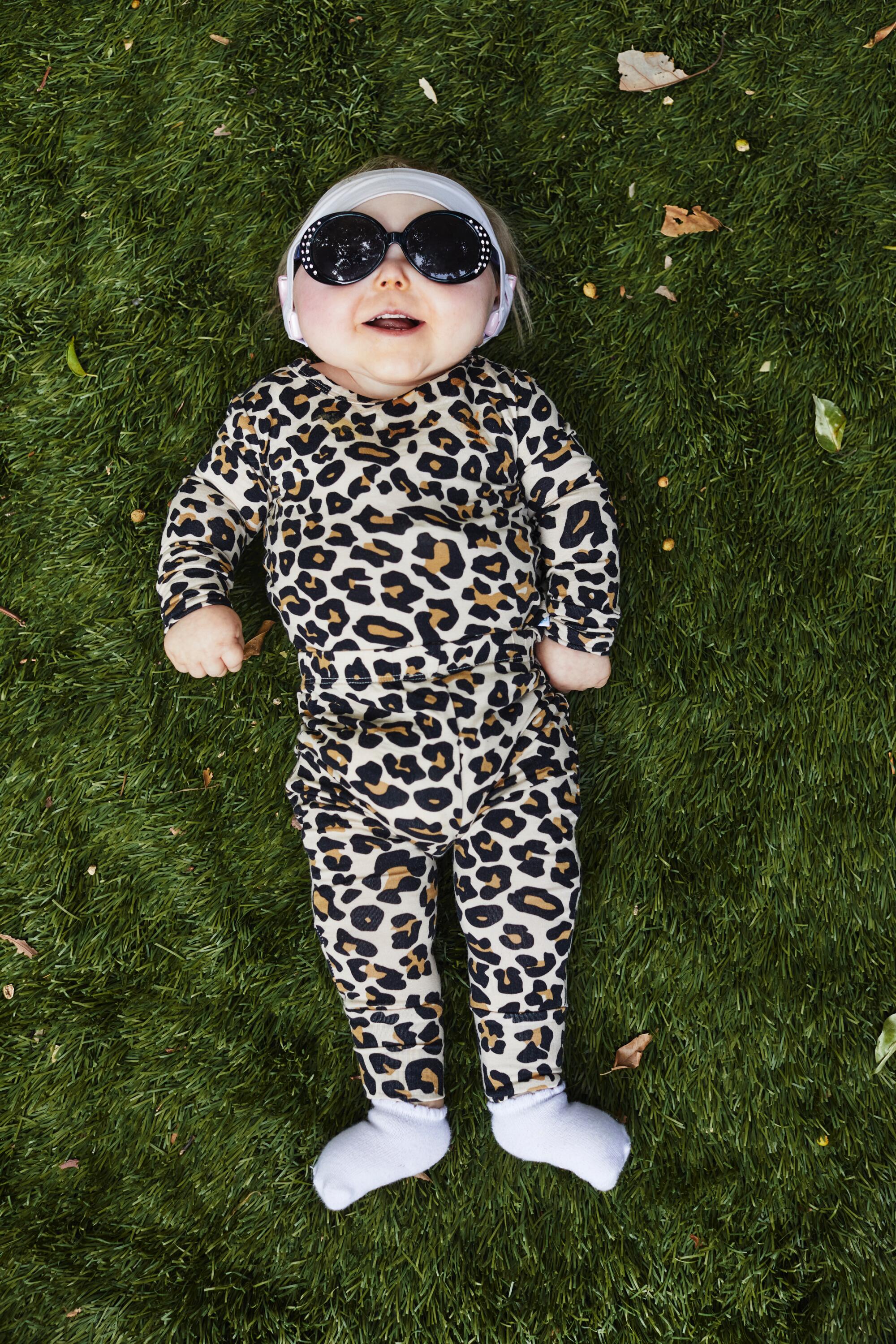
Doctors often referred to me and my husband as Evan’s “caretakers,” which I silently objected to. Yes, I was forced to learn more than the average mother: how to administer food through a gastrostomy tube, give emergency shots, treat and monitor seizure activity, provide physical and occupational therapy and deliver a dozen round-the-clock medications. However, a mother’s job description is to take care of her child. My kiddo had different needs than other children her age, but she was no different when it came to her love of the basics: books, music and, in her case, fashion.
So when the little girl matter-of-factly said, “That’s a fancy baby,” she wasn’t wrong. She just didn’t realize that all the bells and whistles were masking the fact that Miss Evan was having some form of heart failure at the very moment she complimented her.
It had been a slow progression. Her heart was just one of countless markers we kept an eye on with her dozens of specialists at multiple hospitals. One week before I was due to give birth to my now 6-month-old son, Reid, we landed in the ICU with Evan after a “routine” cardiology appointment left us in a “Code Blue” state of alarm.
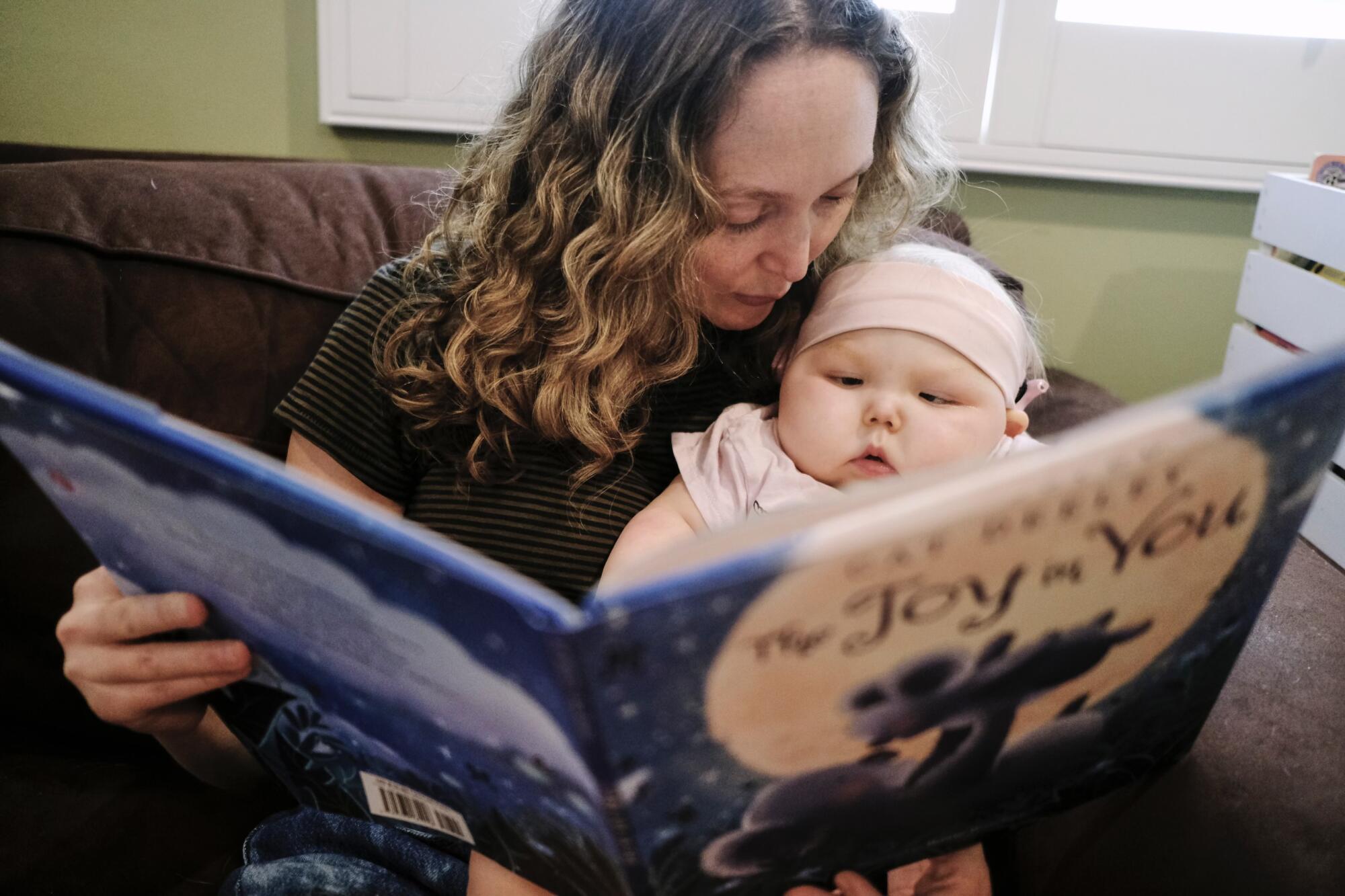
We were told Evan needed a heart transplant, but we understood that she wasn’t a candidate for several complicated reasons, among them the fact that she was already so medically fragile that she likely wouldn’t have survived the surgery and that she would have to check back into the hospital for months on end, waiting for a heart to “hopefully” arrive at someone else’s expense.
When Evan wasn’t strolling in sunglasses, she spent much of her life in and out of the hospital. We knew that this wasn’t a way to live. Evan had been fighting to stay alive since the day she was born, while we fought to give her the best life we could. So we dressed her in “fancy” clothing, joked that her alter ego was “Bougie Baby” and took her on trips to the Malibu Pier, Calamigos Ranch and the Travel Town Train Museum in Griffith Park.
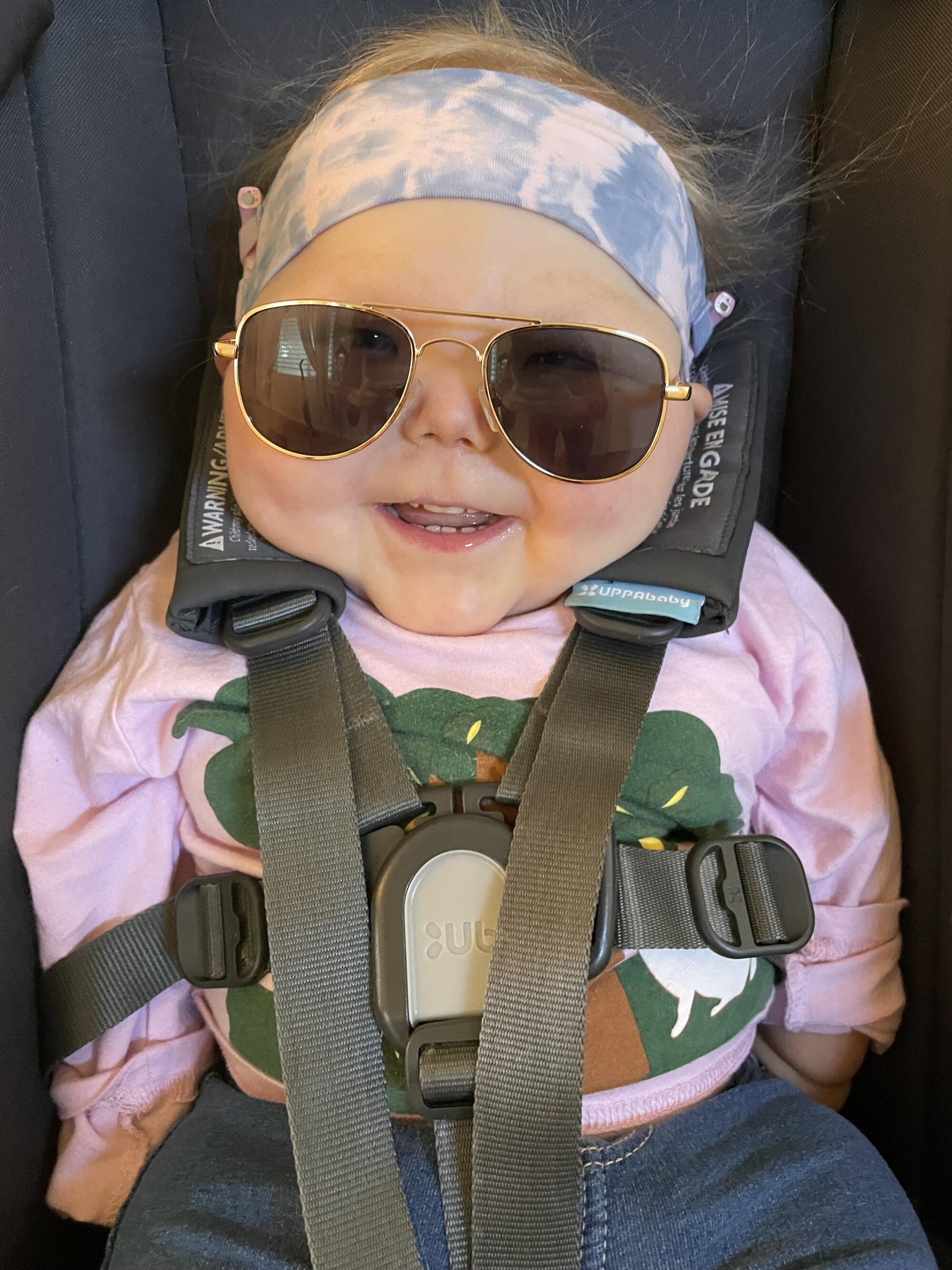
We did everything we could to let her be a kid while still attending far too many doctors’ appointments amid fights with our health insurance company, multiple pharmacies, Los Angeles Unified School District and Regional Center — a state-funded organization that helps support kids with developmental disabilities — for much-needed but often-denied services, the result of the medical-industrial complex and a broken public education system.
“There is no good ending to this,” I often sobbed to my therapist as I tried not to play out the different possibilities we’d been warned about. We’d been told by different doctors that they didn’t know when or how exactly her disease would transpire, but that it could be a life-ending seizure, a stroke, a heart attack or some other horrific ending that would require years of therapy to process.
“My dream of all dreams would be for her to pass away peacefully overnight,” I often told doctors, knowing that most parents get to have much bigger dreams for their little aspiring lawyers and astronauts.
From borrowed parking spots to pool pop-ins, not all friendships are created equal.
My husband held his breath each morning as he walked over to greet Evan. He could only exhale the moment she’d smile lovingly at him from her crib. Luckily, once again, Evan knew better than all of us.
My daughter passed away the evening of April 28, 10 days before Mother’s Day and three months shy of July 31, her fourth birthday.
Like everything else in her life, Miss Evan did it on her own terms. She wasn’t surrounded by doctors or nurses or buzzing machines. Instead, Evan was in our home, in her bedroom, surrounded by books, music, love and an arsenal of sunglasses. So. Many. Sunglasses.
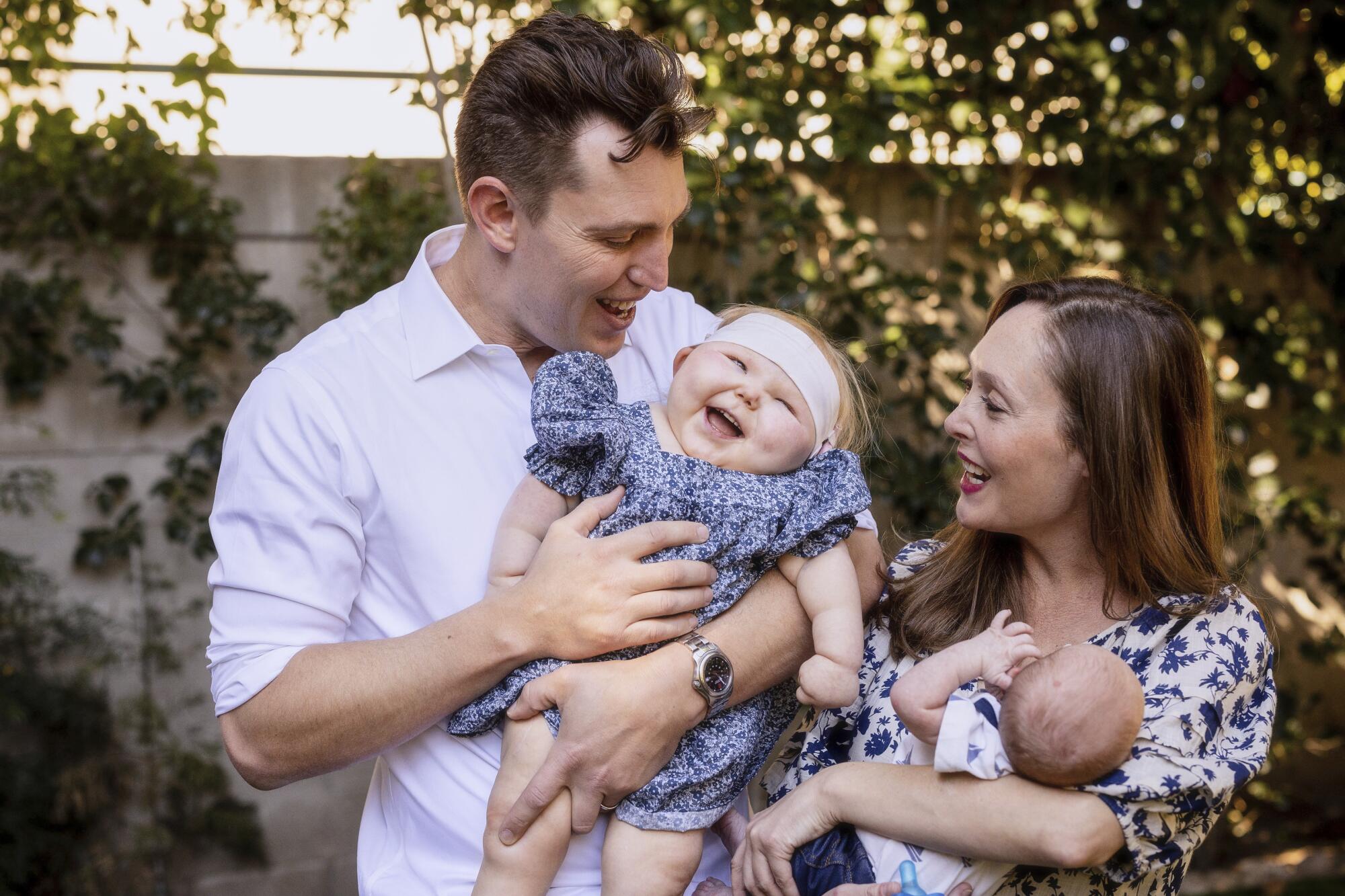
With an oxygen mask over her nose and her family circling her crib, Evan took one last breath as we sang John Mayer’s rendition of the Tom Petty classic “Free Fallin’,” her favorite song and a part of her nightly evening routine.
“And now I’m free, free fallin’,” my mom, dad, brother and I all sang as my husband strummed the guitar and my cousin held Reid.
And Evan finally was. Because as I watched her lay peacefully, I realized a body is just a body. I felt her presence long after the song had ended. That’s how I know that her joyful spirit will live on — through me, through our family and through the many beautiful lessons she taught us.
I became a dog dad and a husband. Does life get any sweeter?
I urge you to look past the “accessories” — the ones you recognize (like sunglasses or headbands) as well as the ones worn out of medical necessity (like cochlear implants and leg braces) — to see the magic behind these special kids. Take an extra beat to look them in the eyes and meet them where they are. I promise it’ll benefit you more than them. Because you’ll have borne witness to a living angel. A presence that transforms you into the best possible version of yourself. A spirit that teaches you to live in the present. A soulful smile that channels pure joy between moments of pain.
Evan’s toothy grin let us know she was OK. It let us know that she forgave the doctors and nurses who were tasked with poking and prodding her. It let us know that she managed to find genuine joy between her everyday struggles. May that be a lesson to us all. It certainly was to our family.
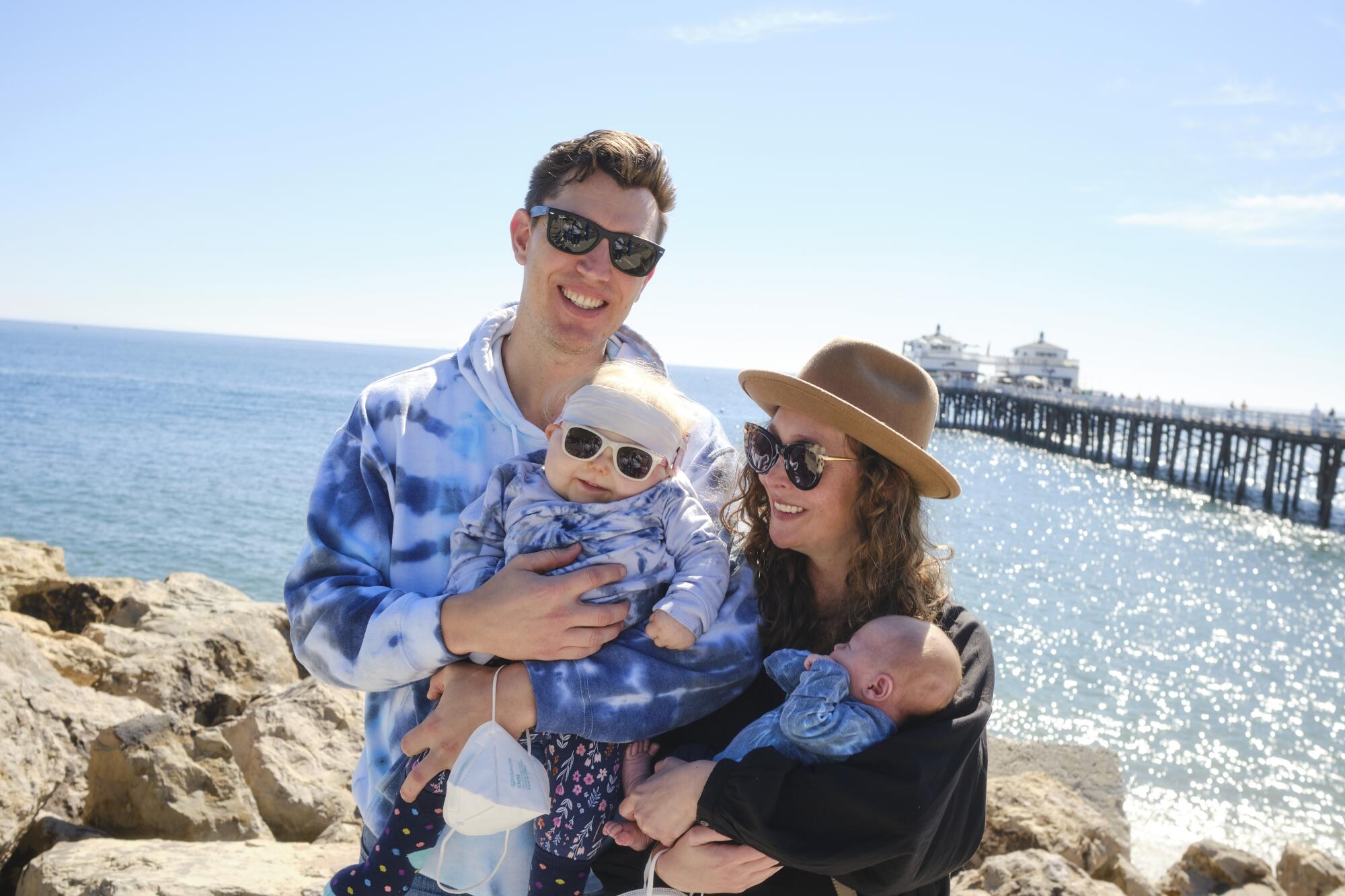
I don’t doubt that my grief, while as fresh as it gets, will never fade. It comes in waves — much like the ocean, which Miss Evan enjoyed putting her feet in alongside the Malibu Pier. Wearing her signature shades, she would hold her breath in anticipation of each wave and would squeal as the water hit her Metallic Bloom-painted toes. She’d want to do it over and over.
I certainly don’t wish to repeatedly feel this feeling, but I recognize it’s important to acknowledge it. I know that it’ll ebb and flow. I’ll learn to live with it and to endure. I owe it to Evan and to her brother because that’s what it is to be a mother. Miss Evan may now be with us only in spirit, but her mother’s love will live on forever.
Lindzi Scharf is a freelance entertainment and lifestyle writer whose stories have appeared in the Los Angeles Times. Her work can be found at the Retaility.
More to Read
Sign up for The Wild
We’ll help you find the best places to hike, bike and run, as well as the perfect silent spots for meditation and yoga.
You may occasionally receive promotional content from the Los Angeles Times.
